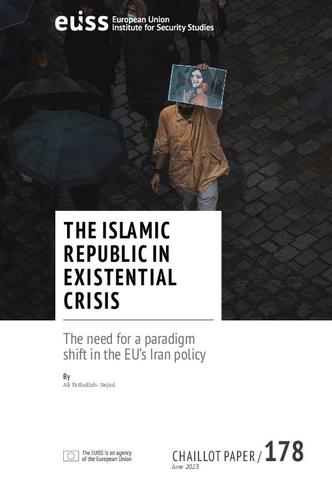You are here
The Islamic republic in existential crisis

As of the autumn of 2022, the Islamic Republic of Iran was confronted with the most serious protests since its inception. The wave of protests, sparked by the death in custody of Mahsa Amini, appears to have infused Iran’s long-term revolutionary process with an irreversible momentum.
This Chaillot Paper examines the background to the protest movement in Iran, focusing on the profound crises – socio-economic, political and ecological – with which the Islamic Republic is currently grappling, as well as on the issue of gender discrimination and inequality.
It argues for a paradigm shift in the EU’s approach to Iran that takes account of changing dynamics in the country, rather than being based on assumptions that may have lost their relevance since the 2015 Joint Comprehensive Plan of Action (JCPOA) was signed and especially since the 2022 protests and the war in Ukraine. The paper identifies core elements of Iran’s foreign and nuclear strategy, an understanding of which is indispensable for a more effective EU foreign policy towards Tehran, as well as providing a critical review of the EU’s Iran policy. Finally, it puts forward a number of policy recommendations for the West’s stance vis-à-vis Iran, arguing for a middle ground between the equally unpromising postures of belligerence and appeasement.